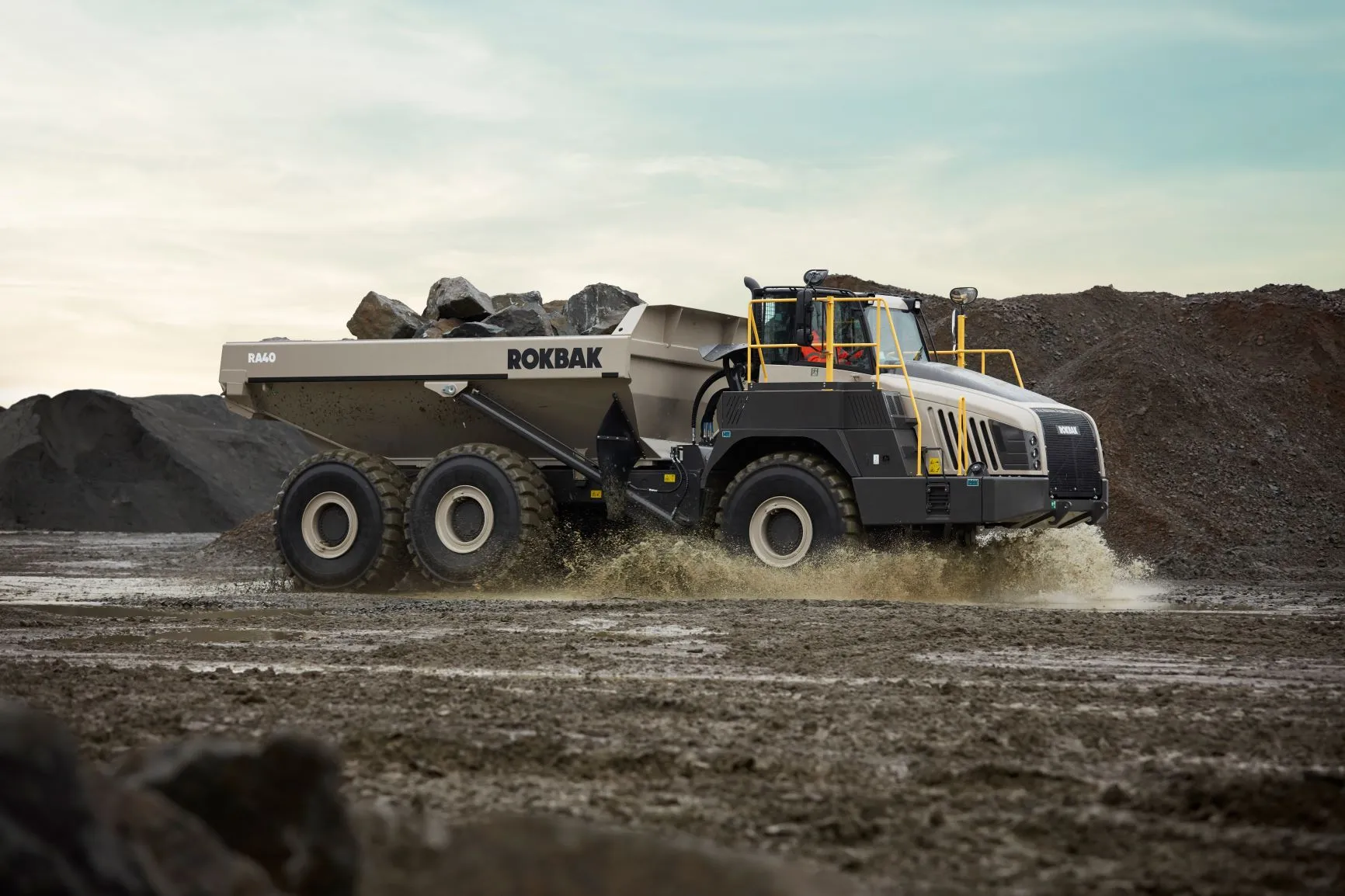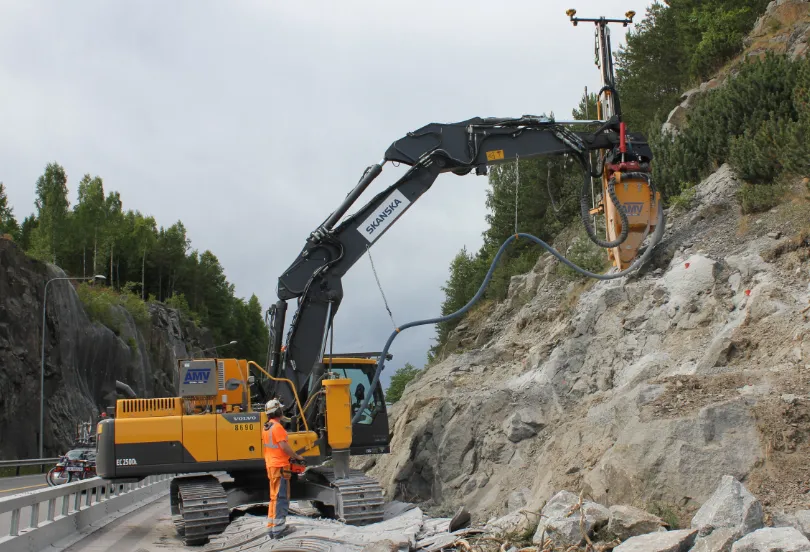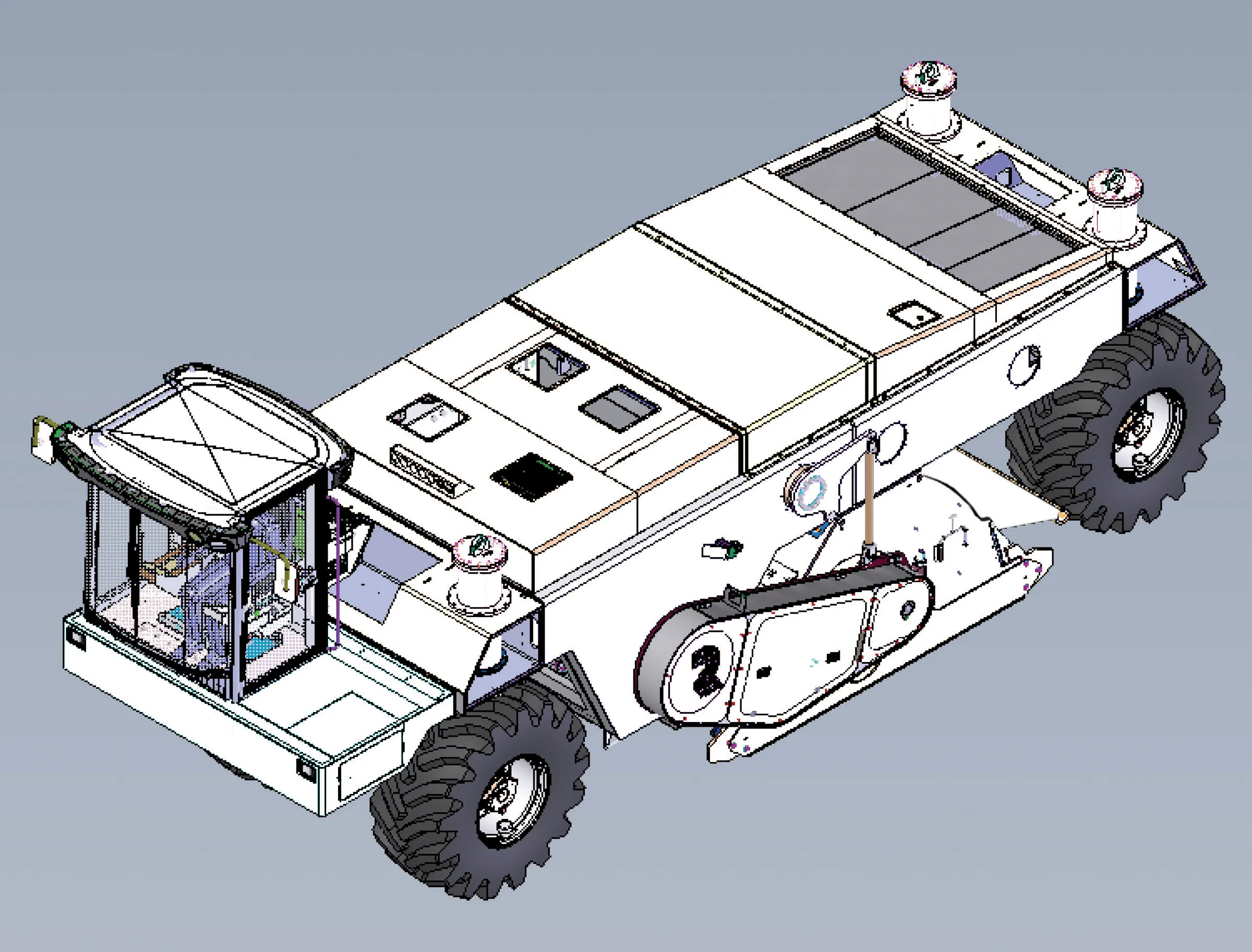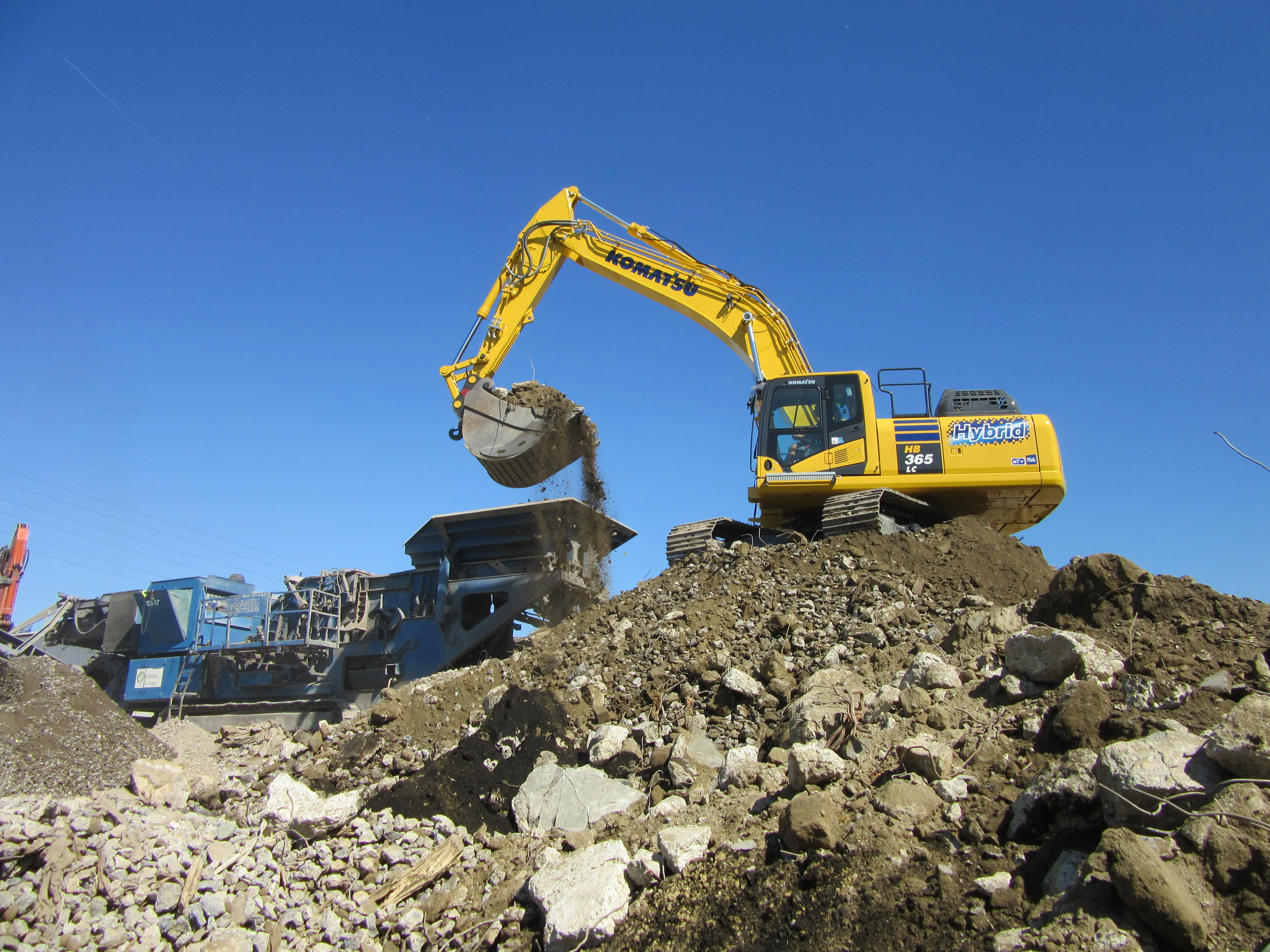
When the temperature start dropping and remain there, haulier fleet owners and vehicle operators need to be vigilant to keep their machinery fit for purpose. At the least, much productivity could be lost due to a vehicle breakdown. At worst, it could be a matter of life and death for an operator at substantially low sub-zero temperatures.
This is why Scottish articulated hauler manufacturer Rokbak has new for this winter a 1500 500W/115V immersion heater and thermostat for the engine cooling system.
Engines for both the Rokbak RA30 and RA40 ADTs can now be fitted with these options. Particularly useful when operating for prolonged periods in cold climates, the purpose of the immersion heater is to help the engine get up to operating temperature, by preheating the engine before it is started.
Pre-heating the engine is more time efficient and reduces idle fuel burn and CO₂ emissions, making operations more productive and more sustainable. The manufacturer has two models of articulated haulers, with payloads ranging from 28 tonnes to 38 tonnes (30.9 US tons to 41.9 US tons).
The cooling system also needs to be adequately protected from the elements. The coolant in the truck’s radiator should be filled to the cap as, in extremely low temperatures, the ratio of ethylene glycol antifreeze to water should be 60-to-40 to stop the water from freezing and creating stress in the engine. Cooling systems should be inspected weekly.
This advice from Rokbak, a member of the Volvo Group and headquartered in Motherwell, Scotland, is among the company’s top 10 tips for efficient operation during these cold months in the northern hemisphere.
Other advice includes correct battery storage. Cold temperatures can have a detrimental effect on batteries, leading to reduced power, potential breakdowns and even explosion when being changed. When necessary, storing batteries away from the extreme temperatures when not in operation means having these reliable power sources ready when it’s time to work again.
Enhanced traction control in winter is essential because of slippery winter roads. Rokbak’s haulers have three axles in permanent all-wheel drive to provide traction, reduced driveline wear and reduced wheel spin.
Meanwhile, cold weather fluid options in engine oil, fuel, engine coolant and hydraulic fuel designed for the RA30 and RA40 are advised to be used during extended operation in extremely low ambient temperatures. These factory-fill, cold weather fluids safeguard essential machine systems and components, ensuring optimal productivity and uptime.
Operators should consider specific arctic fuel options when the temperatures can tumble down to -40 degrees (where Celsius and Fahrenheit are equal). At these temperatures standard diesel fuel is prone to gelling or waxing.
In extremely cold weather, regular routine maintenance is even more important.
This should include fluid changes, weekly cooling system inspections - especially the coolant reservoir and hoses - and tyre pressure adjustments.
The headlamp pods on the Rokbak machines are designed to be easily serviced without raising the hood and heated mirror arrangements offer greater visibility down the side of the machine. Each truck should also be equipped with good windscreen wipers to maintain visibility and ensure safe operation.
When an operator is out there for several hours in a deep freeze, fleet owners should never underestimate the importance of cabin comforts. Rokbak has made long operator hours in cold conditions more manageable through heated seats and climate-controlled cabins.
Finally, snow may look pretty but countering its effect can mean salt and other corrosion-type hazardous materials are spread around roads and construction sites. Frozen dirt and mud becoming attached to trucks when inactive is hard to remove and potentially damaging. Taking the time for a daily clean will protect the hauler body and components for extended service life and lower repair costs.









